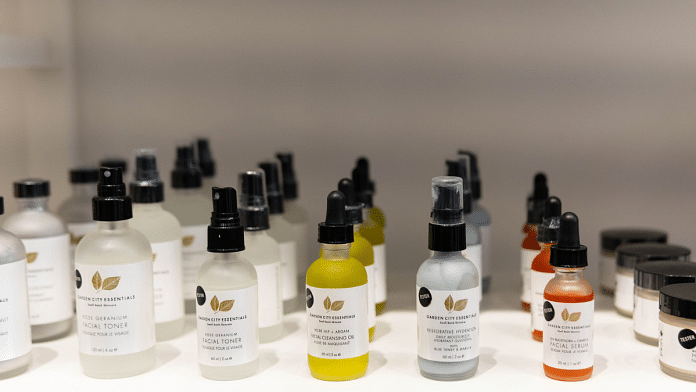Instagram is a magnet that keeps millennials and Gen-Z glued to their screens. From a new dress to the food they eat — everything needs to be filmed for the “Gram family”. This constant pressure to be more ‘Instagram-acceptable’ forces people to believe and emulate the fabricated appearances of their favourite Instagram models, and they end up trying different beauty hacks and cosmetic products.
But these medically unproven self-treatments can be lethal for your skin health. It’s important to dig deeper and understand how social media advice is ruining your skin.
The Instagram mirage
Instagram is building upon the business of illusion created by television advertisements in the past. Brands leverage the influencer culture to target their customers through psychological manipulation. Just like Fair & Lovely ads of yore, they take advantage of viewers’ insecurities about their own selves to promote their products. And influencers add to it by creating unrealistic expectations of beauty.
The ‘inability’ to become ‘picture-perfect beautiful’ like Instagram models impacts people’s self-esteem, which leads to anxiety, depression, body dysmorphia, and eating disorders. It becomes easy to manipulate this vulnerable audience and push them further into trying different skin care DIYs (do-it-yourself hacks) using the products shared by models.
But are these products effective? More so, do you actually need them?
Also read: Hair transplants don’t work for balding women. But don’t lose heart
What’s wrong with DIY methods?
The Instagram algorithm complements brands’ targeted marketing so that you see the products you’re most likely to purchase. Users conscious about their skin and appearance fall prey to these ads and impulsively try out new products at home.
But the outcomes of DIY skin treatment are different.
Bleaching creams are some of the most popular products advertised for getting ‘fair and glowing’ skin. Bleach and skin whitening creams contain high levels of mercury, which is known to block the production of melanin — the pigment responsible for dark skin, hair, and eyes. But constant exposure to mercury can have serious health consequences, including skin cancer risks and damage to the kidneys and the nervous system.
Laser hair removal performed by professionals under proper medical care is an effective means of getting rid of body hair. Nowadays, there are many gimmicky devices available online that claim to provide laser hair reduction at home. However, falling prey to them can further stimulate hair growth and even harm your skin cells.
In medical terms, a chemical peel is an agent that induces control chemical burns (CCBs) on the skin to remove acne and scars, leaving behind smooth skin. It involves the removal of the outermost layer of your skin — a process called peeling. Many teenagers purchase unlicensed ingredients for chemical peeling online. Wrong products and procedures can result in skin pigmentation, urticaria, and even cancer.
Also read: Delhi pollution making your skin sound the first alarm. But you can fix it
Not all is meant for you
You will find all sorts of face serums making rounds on the internet — promising you ‘clear’, spot-less, ‘bright’ complexion. And it is enticing to include them in your skincare regime. But the constant use of these serums without a prescription can have major consequences in the long term. Niacinamide is an antibiotic serum prescribed specifically for acne treatment. Its regular use can damage skin tissues and pores. Similarly, Retinol serums can lead to sensitive skin and AHA/BHA serums can cause skin thinning.
Gua sha stones are gaining popularity as tools for improving blood circulation of the skin, relieving tension, and sculpting face structure. However, if not done properly, this can lead to artificial skin tightness — you break the process for a month, the skin muscles turn fat due to muscle hypertrophy or slack due to the breakage of muscle fibres.
Apart from this, constant exposure to screens can not only damage your eyes but also the muscles around them, leading to premature wrinkles. Similarly, the exhaustion, stress, and emotional trauma from comparing your life to the ‘Instagram life’ will eventually start showing on your skin.
Also read: Chewy, colourful, vitamin-filled — health gummies are the latest fad to emerge from Covid
What do dermatologists recommend?
Using DIY skincare products without medical supervision and guidance is not a wise choice. Most skin types don’t even need a regular cleansing, toning, and moisturising (CTM) regime. Obsessing over these beauty products to enhance your skin is only going to tire you out and cause stress.
All your skin needs is a basic skincare regime that includes washing your face twice a day and applying a clinically certified sunscreen with a suitable sun protection factor (SPF). If you are experiencing certain issues such as acne, rashes, or pigmentation, refrain from ‘ghar ka nuskha’ (home remedies). Instead, meet a dermatologist to seek help and guidance.
External skin care determines only 30 per cent of your skin health — the rest depends on what’s inside. This is why a proper diet is very important for healthy skin. Include walnuts for omega-3 fats, broccoli for Vitamin A, tomatoes for Vitamin C, dark chocolate, and green tea.
In this Insta-influenced era, it is not unusual to be fearful of being seen as a social gauche. Try taking a break from Instagram. Replace scrolling with walking outdoors. Spend time doing things you love. Talk to people around you instead of texting, and see how your skin starts to glow from within.
Dr Deepali Bhardwaj is a dermatologist, anti-allergy specialist, laser surgeon and internationally trained aesthetician. She tweets @dermatdoc. Views are personal.
(Edited by Humra Laeeq)



